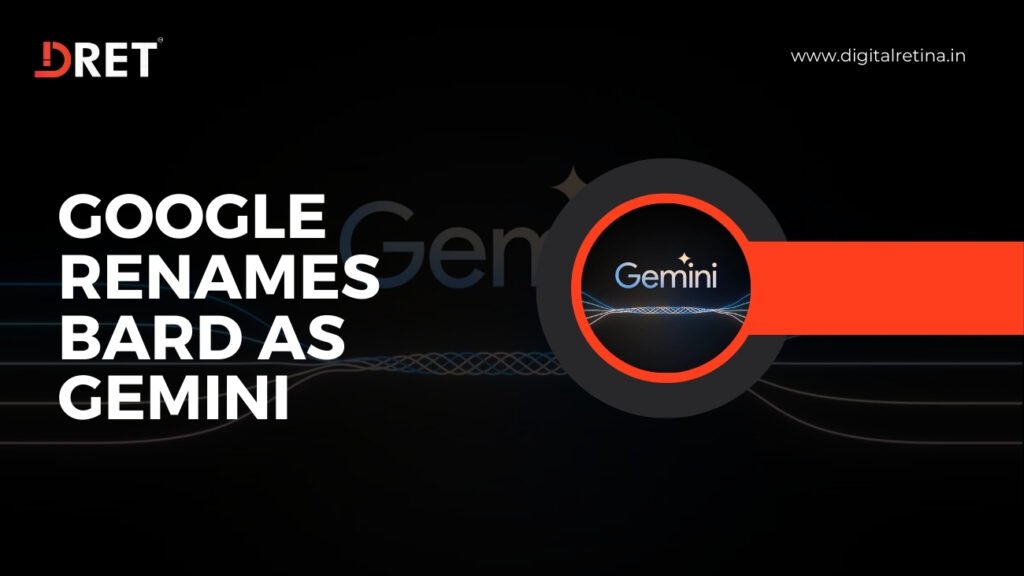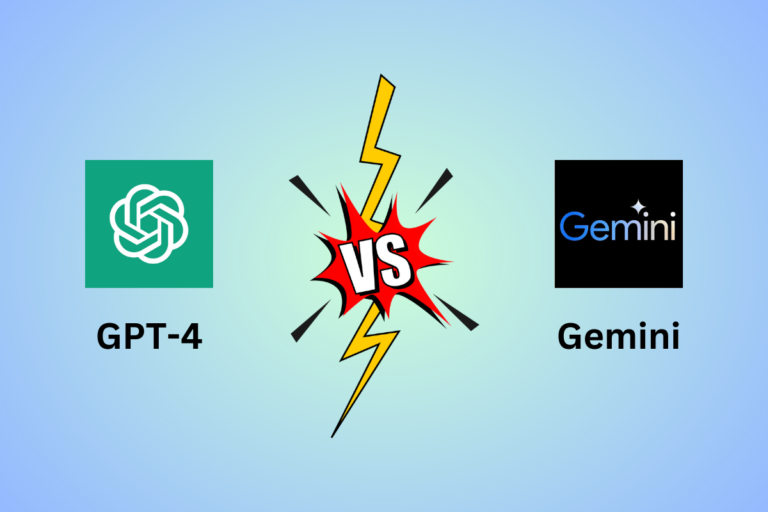
Google Rename Bard to Gemini

Introducing Gemini
Google’s Leap Forward in Conversational AI. Gemini, formerly known as Bard, marks a significant milestone in Google’s quest to revolutionize the way we interact with artificial intelligence. Designed with the user at its core, Gemini combines state-of-the-art technology with unparalleled ease of use, offering a more intuitive, responsive, and engaging experience. Whether you’re seeking information, need assistance with tasks, or simply wish to have a chat, Gemini is your go-to AI companion. Built on Google’s robust AI framework, it leverages deep learning and natural language processing to understand and respond to queries with remarkable accuracy and depth. With Gemini, Google reaffirms its commitment to enhancing human-computer interaction, providing users worldwide with a smarter, more connected future.
What Does Google Gemini Do?
Google Gemini, as conceptualized in the context of rebranding Bard, is designed to be a cutting-edge conversational AI platform that aims to enhance the way users interact with digital information and services. It serves multiple purposes, including but not limited to:
Information Retrieval: Gemini can quickly search for and provide accurate, up-to-date information from the web, tailored to the user’s query.
Task Assistance: From setting reminders and scheduling appointments to sending emails, Gemini can assist users in managing their digital tasks efficiently.
Conversational Interaction: Designed to offer a more natural and engaging conversational experience, Gemini can understand and participate in fluid human-like dialogue, making interactions more enjoyable and less robotic.
Learning and Adaptation: Leveraging machine learning algorithms, Gemini continuously learns from interactions to improve its responses and better understand user preferences over time.
Integration with Google Services: As a part of the Google ecosystem, Gemini seamlessly integrates with other Google services and platforms, enhancing user experience by providing cohesive access to tools like Google Maps, Gmail, and Google Calendar.
Accessibility Features: Ensuring accessibility, Gemini includes features designed to help users with different needs, making digital information more accessible to everyone.
Is Google Gemini free?
Google is providing complimentary access to Gemini Advanced for two months to users subscribed to its Standard and Premium plans. Following this period, a monthly fee of Rs 1,950 will apply. Basic plan subscribers will have the opportunity to upgrade to at least the Standard subscription plan to avail of this offer.
Free Access:
Google might provide basic access to Gemini for free to individual users, incorporating it into their ecosystem alongside other free services like Google Search, Gmail, and Google Assistant.
Premium Features:
For advanced features, business integration, or professional use, Google could introduce a subscription model or a pay-per-use scheme.
It’s important to check Google’s official announcements or their product page for the most accurate and up-to-date information regarding the availability and pricing of any new service they launch, including something like Gemini.
Bard vs. Gemini: Which is Better?
Gemini is a significant step forward from Bard in terms of accuracy, nuance, and real-world integration. With training on a broader and more varied dataset than its predecessor, Gemini excels in comprehending and delivering precise answers to inquiries.
Comparing Bard and Gemini, particularly in a hypothetical scenario where both are Google’s conversational AI platforms. (with Gemini being a rebranded version of Bard), Involves evaluating them based on several key factors such as user interface, response accuracy, integration with other services. Overall user experience. However, since “Gemini” as a rebranded successor to Bard is a conceptual premise rather than a confirmed product update from Google.
General Comparison Framework:
User Interface (UI): The ease of use and the intuitive nature of the AI’s interface can significantly affect user preference. If Gemini is designed with an updated UI that improves upon Bard’s, it could offer a more engaging and user-friendly experience.
Response Accuracy and Relevance: The core value of a conversational AI lies in its ability to understand and accurately respond to user queries. Enhancements in Gemini’s natural language processing (NLP) and machine learning algorithms could provide more relevant and precise answers than Bard.
Speed and Efficiency: If Gemini offers faster response times while maintaining or improving the quality of interactions compared to Bard, it would be a considerable advantage, especially for users seeking quick information or assistance.
Integration with Google Services:
Both platforms’ ability to integrate with other Google services (like Maps, Calendar, and Gmail) can greatly enhance productivity and convenience. If Gemini offers deeper or more seamless integrations, it could be viewed as superior.
Learning and Personalization: An AI that learns from user interactions to provide personalized experiences is highly valued. If Gemini introduces advanced personalization features, making it more adept at tailoring responses and recommendations, it could surpass Bard in user satisfaction.
Accessibility and Inclusivity: Features that make the AI more accessible to a diverse range of users, including those with disabilities, can also be a deciding factor. Improvements in this area could make Gemini more appealing.
Pricing and Availability: If Gemini introduces a more flexible or value-oriented pricing model, or if it’s more widely available across different devices and platforms than Bard, it could attract a broader user base.
Bringing Gemini’s Capabilities to More Products
Gemini’s models are also coming to products that people and businesses use every day, including Workspace and Google Cloud:
Workspace: Over a million users are already leveraging features such as ‘Help me write’ to boost their productivity and creativity with Duet AI. This service will transition to Gemini for Workspace, allowing Google One AI Premium plan subscribers to access Gemini’s capabilities in Gmail, Docs, Sheets, Slides, and Meet soon.
Google Cloud: Duet AI is set to transition to Gemini for our Cloud customers in the upcoming weeks. This change aims to enhance company productivity, accelerate coding for developers, and assist organizations in safeguarding against cyber threats, among numerous other advantages.
GPT-4 vs. Gemini: Key Similarities

GPT-4 and Gemini are both Large Language Models that are capable of understanding and generating responses across a variety of mediums.
At a high level, they look fairly similar.
Currently, both LLMs are offered in different sizes. GPT-4 is OpenAI’s largest offering and compares to Gemini Ultra in terms of total parameters and functionality. The free version of ChatGPT now runs on ChatGPT-3.5. And, according to benchmarks, GPT-3.5 compares to Gemini Pro, which is currently available in Google’s chatbot, Bard.
The Full Offering of Gemini’s Sizes Are Outlined Below.
Gemini Ultra: Full size model for highly complex tasks (unknown parameter size).
Gemini Pro: A balance of performance and deployability at scale, integrated into Bard
Gemini Nano: The smallest model designed to run in on-device applications. Broken into two different sizes.
Nano-1: 1.8B parameters.
Nano-2: 3.5B parameters.
Conclusion
The evolution from Bard to Gemini signifies a monumental leap in Google’s AI capabilities, offering unparalleled precision, wider data integration, and a seamless user experience. With its user-centric design, Gemini not only enhances conversational AI but also sets a new standard for digital interactions, accessibility, and integration with Google’s ecosystem. Whether for personal use or business applications, Gemini’s adaptive learning and advanced features promise a more connected, intuitive, and productive future, making it a cornerstone of Google’s commitment to pushing the boundaries of AI technology.
AI also plays a crucial role in web development, streamlining the creation process and enhancing user experience through automation and personalized content.
digitalretina

Jayant Singh
Meet Jayant Singh, the visionary CEO of Digital Retina. With over 8 years of expertise in digital marketing and brand growth strategies, Jayant's leadership has led to the successful transformation of numerous businesses. His knack for innovative solutions continues to shape the digital marketing landscape.


Comprehensive Guide to PPC Strategies: How to Make the Most of Your Paid Advertising

